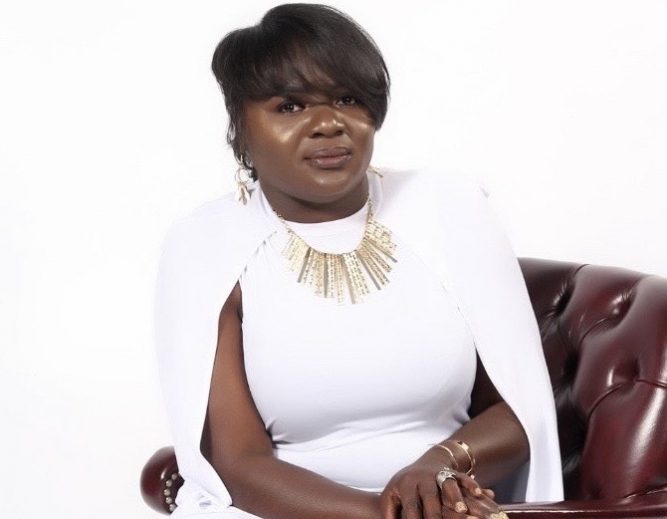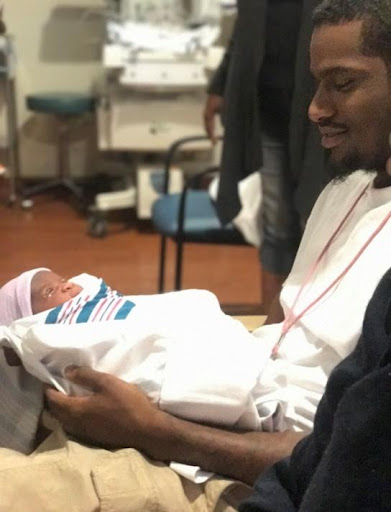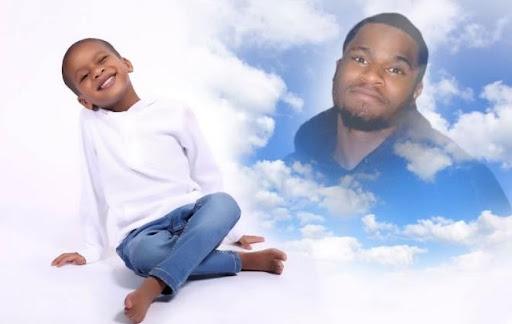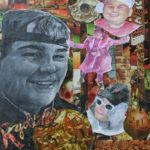
When a parent loses a child, our world becomes a different place. We fight each day to survive, but when a child loses their parent, that child faces hurdles we don’t even think about.
My grandson was only three months old when his dad was murdered. My son was holding him in his arms moments before our lives would change forever.
For children dealing with the loss of a parent, these intense feelings can be extremely hard to process. Kids need their surviving parent, caregivers or the other trusted adults in their lives to help them get through their grief.
When I first heard my grandson utter these words, “I don’t have no dad,” it cut me so hard that I cried myself to sleep. I didn’t know what to say, or how to react, so I just told my now 4-year-old grandson I would call him back tomorrow.
Gun violence doesn’t just affect the person who was murdered. It impacts all who were instrumental in the victim’s life, especially the children. These murderers don’t think about the innocent children who will always have an empty void in their hearts.

Some fatherless or motherless children have issues with communication, interacting, and just surviving on a daily basis. They will forever imagine their absent parent’s touch, smell, look and how they sound. They will forever try to imagine how tall or short they are, where they got their looks from. When other children talk about their parents, they will make up stories to fit in. Some of these children are filled with so much grief and anger that it causes them to act out in school and in the community, searching for love and peace in all the wrong places.
Our babies need love, attention and guidance in order to save them from themselves. Please don’t be easy on them because their parent has been murdered. Be fair with them and assist in their upbringing so they can become upstanding members of society.
Death in itself is a challenging subject to discuss with anyone, let alone a child, but avoiding it as a way to protect your child will do more harm than good. We also must tell the children the truth about the deceased parent. Do not tell a child that their parent is sleeping, let them know the truth. Tell them that they do have a dad, but he is no longer here with us on this earth. He is in heaven or paradise. One day hopefully you will see him again.
Here are some ways to assist our fatherless/motherless grandchildren:
- Allow them to attend the funeral services and other celebrations for the departed.
- Let them know they can ask questions about the deceased and how they passed.
- Don’t be afraid to use words like “died” or “killed” even if it seems harsh.
- Spend time with them, take an interest in them, ensure you’re at the birthday parties, school plays and so on.
- Don’t hesitate to talk with them about your child. Pull out pictures and videos and share those memories with them.
- It’s okay to have the child go to therapy and work closely with the therapist.
Finally, always be honest about the nature of the death, while taking your child’s age into account and using words they will understand. Going into too much detail can overwhelm a younger mind, so keep your explanations truthful but brief. Hiding the truth can cause mistrust later as children learn more. Children ranging from ages 3-to 5 may have trouble grasping the permanence of death. They may say, “Daddy is gone,” and an hour later wait at the window for Daddy to come home. As the present parent, you have to remind them of the tragedy that has occurred.
When my grandson turned five earlier this month, I told him the story of his birth.

His mother was in labor and my son Niam was scared. At first Niam said he didn’t want us to be with them as his girlfriend was giving birth—they wanted it to be about them and the baby. Although I was hurt, I understood, and decided to have Easter Dinner at my house.
Later that evening as we finished dinner, Niam began calling me, yelling, “Mom, you’ll have to come to the hospital now.”
I said, “No, I have a house filled with people over here.”
Niam said, “Mom I need you now. Tell them to leave.I don’t know what to do.”
I laughed and said, “I knew you couldn’t handle it and everyone already knew you were going to call for me to come to the hospital.”
When we arrived, the hospital staff said that Niam has been waiting for us and took us to the room. When he saw me, Niam’s facial expression changed from fear to joy. He didn’t say a lot with his mouth, but Niam always talked with his eyes. He looked relieved and finally said, “I can’t take this. It’s too much for me to handle.”
We all stopped in our steps and laughed as his girlfriend was in active labor delivering my grandson. Niam said he wanted to take a walk, and I told him to hurry back so you won’t miss the birth of your first child.
When Niam came back, you could still see the fear in his eyes, but he had a different walk and glow. Moments later, the baby was coming. This was a joyous occasion for all of us. Niam realized it was no longer about him, but about this baby he helped create. My son grew up in front of my eyes as he was honored to become Kairi Niam Johnson’s dad and cut the umbilical cord.
When my grandson now says he don’t have no dad, I say, “Kairi, yes you do, although he is no longer on this earth but in your heart. Look up in the sky through the clouds. That’s where your dad lives. One day, after you have lived your life, you will once again be with him.”
Kimberly Kamara is the author of “Where’s My Daddy,” a children’s book aimed at kids who’ve lost a parent to murder. The book was inspired by her family’s continuing journey of grief after her son, Niam Johnson-Tate, lost his life to gun violence on July 5, 2017. Kimberly has two daughters and lives in Germantown with her husband.









